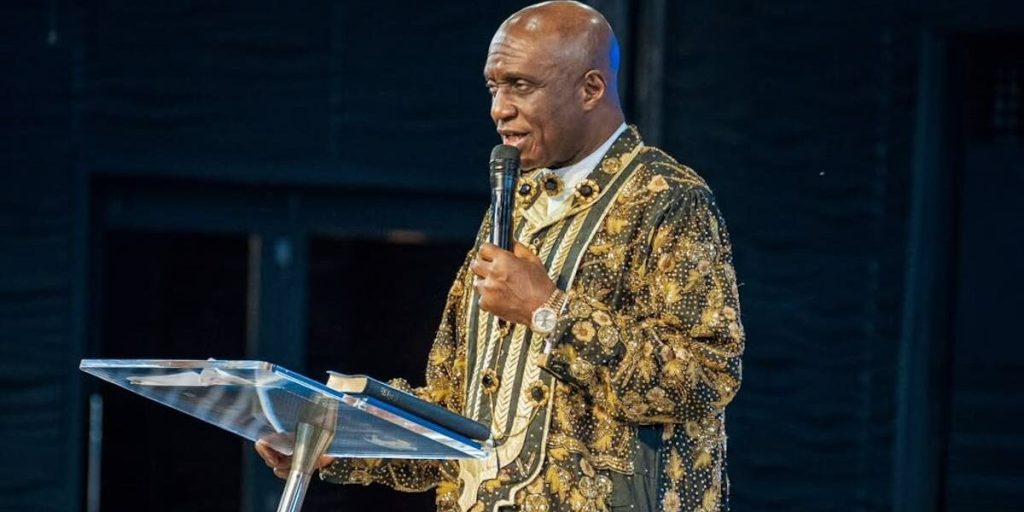
Renowned Nigerian pastor and founder of Salvation Ministries, Pastor David Ibiyeomie, has addressed the widespread backlash that followed his controversial statement claiming that Jesus Christ hates poverty and poor people.
The comment, which sparked intense debate on social media, was part of a sermon clip that quickly went viral. In the video, Ibiyeomie asserted that during His earthly ministry, Jesus never visited the homes of poor people—an interpretation that many critics called unbiblical and insensitive, especially in a country grappling with high levels of poverty.
Social media users and Christian scholars alike challenged the cleric, accusing him of misrepresenting the core values of Christianity, which emphasizes compassion for the poor and marginalized.
In what appeared to be a direct response to the criticism, Pastor Ibiyeomie released a follow-up message in which he defended his statement and insisted he was divinely guided in his interpretation. According to him, after noticing the public reaction, he sought clarity through prayer and claimed that the Holy Spirit confirmed his position.
“Some people were calling me, saying the internet is on fire. I said, ‘What is on fire?’ I wasn’t even aware,” Ibiyeomie said. “Out of curiosity, I asked the Holy Spirit, ‘If I’m wrong, please correct me.’ But He started dictating God’s word to me, and said, ‘You are not wrong, you are right.’”
The preacher explained that the Holy Spirit made a comparison between sin and poverty, telling him that Christians are called to hate both. He argued that just as believers are expected to resist sin and avoid close ties with sinful behaviors, they should also reject poverty as something that is not of God.
He further emphasized that Jesus Christ, though compassionate, did not maintain intimate relationships with sinners or those who represented what he considered ungodly conditions, including poverty. Ibiyeomie drew on passages like Psalm 1, which warns against sitting “in the counsel of the ungodly,” to reinforce his message.
“Can you be a friend to a sinner? No,” he asked rhetorically. “You can lead them to Christ, yes, but you are not called to live like them or dwell in what they represent.”
While his defense has resonated with some of his followers who see his message as a call to rise above mediocrity and embrace prosperity as God’s will, many others remain critical. They argue that the ministry of Jesus was largely centered around the poor, the sick, and the downtrodden, and that the Gospel itself is described as “good news to the poor.”
The controversy has reignited broader conversations around the prosperity gospel—a doctrine embraced by many Nigerian megachurches—which teaches that faith can lead to wealth and success. Critics often argue that such teachings overlook the structural causes of poverty and alienate the very people Christianity seeks to uplift.
As the conversation continues, Pastor Ibiyeomie stands firm in his belief that his message aligns with divine instruction, even as it challenges conventional interpretations of scripture.





